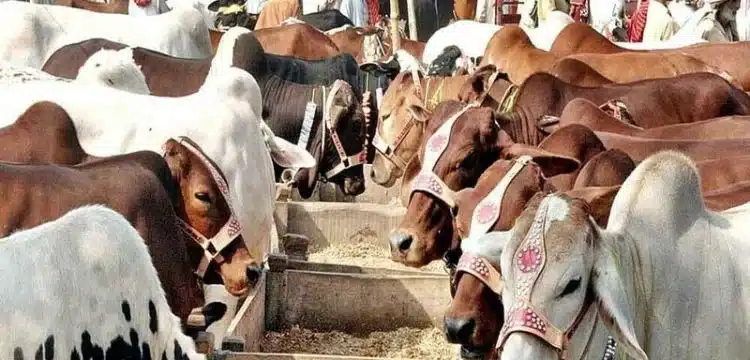[vc_row][vc_column][vc_column_text dp_text_size=”size-4″]
In 2023, Brazil experienced a remarkable surge of 154 percent in its live cattle exports, reaching a total value of nearly $489 million compared to the figures from 2022.
Official data reveals that Pakistan engaged in the importation of various goods from Brazil in the past year, including fibers and textiles, amounting to a total value of $298 million.
Read more: Senate Committee Probes Imports Of Olive Plants
The Economic Coordination Committee (ECC) in Pakistan took a significant step in April 2023 by approving proposed amendments related to the import of live cattle. These amendments were specifically targeted at relevant clauses within the Import Policy Order-2022. The Ministry of Commerce spearheaded this initiative, aligning with the modified conditions and guidelines introduced by the World Organization of Animal Health (WOAH) concerning the trade of animals, particularly cattle.
However, the momentum in Pakistan’s trade scenario faced a setback in September 2023 when the United Arab Emirates (UAE) imposed a ban on the import of fresh meat from Pakistan through the sea route. The ban was enacted due to concerns regarding hygiene, as UAE officials discovered the presence of fungus on meat during the examination of a consignment upon its arrival in the Gulf country.
The surge in Brazil’s live cattle exports in 2023 is a noteworthy economic development, reflecting the country’s growing influence in the global market. The 154 percent increase in export value signals a substantial uptick in demand for Brazilian live cattle. This surge could be attributed to various factors, including the quality of the livestock, competitive pricing, and Brazil’s adherence to international standards in animal trade.
Pakistan’s import dynamics with Brazil also came under the spotlight in 2023, particularly in the realm of fibers and textiles. With a total import value of $298 million, these commodities played a significant role in shaping the trade relationship between the two nations. The diversification of imported goods reflects the mutual economic interests and the ongoing efforts to strengthen bilateral trade ties.
The approval of amendments by the ECC in Pakistan signifies a proactive approach to align the country’s import policies with international standards, as outlined by WOAH. The evolving guidelines for animal trade underscore the importance of adhering to global norms to ensure the health and safety of livestock during transportation and trade. By incorporating these amendments, Pakistan aims to enhance the efficiency and transparency of its live cattle import processes.
However, challenges emerged in Pakistan’s meat export sector in September 2023 when the UAE implemented a ban on fresh meat imports from Pakistan through the sea route. The ban was prompted by concerns related to hygiene, with the presence of fungus on meat discovered during inspections in the UAE. This incident highlights the critical importance of maintaining stringent quality control measures in the meat industry to uphold international hygiene standards and ensure the uninterrupted flow of trade.
In conclusion, the economic landscape witnessed significant developments in 2023, with Brazil experiencing a substantial increase in live cattle exports. Pakistan’s engagement in bilateral trade with Brazil, particularly in fibers and textiles, showcased the diversity of their economic interactions. The approval of amendments by the ECC in Pakistan demonstrated a commitment to aligning with international standards in live cattle trade. However, challenges surfaced in the meat export sector, emphasizing the need for stringent quality control to sustain smooth trade relationships with key partners like the UAE.
[/vc_column_text][/vc_column][/vc_row]











